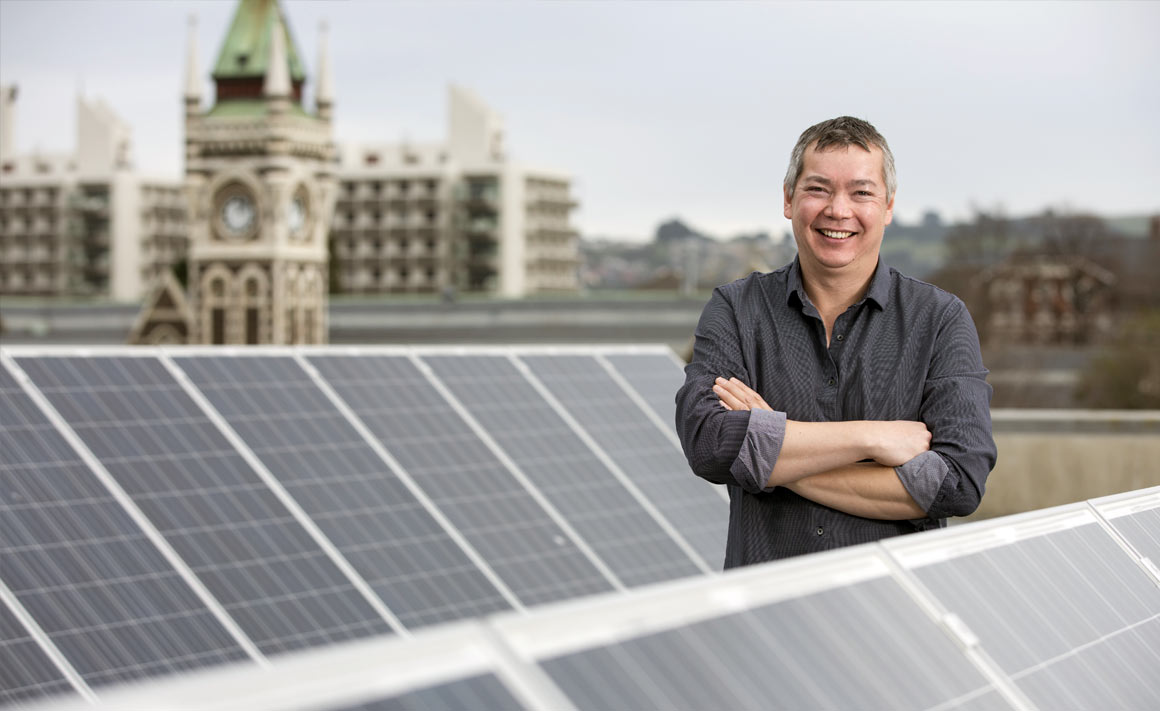 Monday 8 January 2018 11:18am
Monday 8 January 2018 11:18am
The Otago Energy Research Centre brings together research from across the academic disciplines focusing on the transition to a more resilient, sustainable low-carbon future. The breadth of this is highlighted by the work of the centre's two co-directors, Dr Michael Jack and Associate Professor Ivan Diaz-Rainey, in this and the following story. Energy management and energy demands are changing: we need to be ready.
There is growing awareness that New Zealand needs more renewable electricity generation, and greater electrification of heat and transport to deliver on necessary greenhouse gas (GHG) emission reductions.
But one of the problems with renewable sources like solar and wind is their variability – solar obviously peaks during the middle of the day and changes day to day, while wind fluctuates with weather conditions.
Electricity supply from these renewable sources, therefore, varies hugely and does not necessarily coincide with the widely varying electricity demand from consumers.
University of Otago researchers are working on a major collaborative research project, funded by the Ministry of Business Innovation and Employment, which aims to ensure that New Zealanders have access to reliable, safe and affordable renewable electricity. The Renewable Energy and the Smart Grid (GREEN Grid) programme is looking at power management and at future trends in renewable electricity generation and household demand. The aim is to help better plan for the future.
Dr Michael Jack, who is co-director of the Otago Energy Research Centre (OERC), is leading research into domestic energy requirements, monitoring household energy use to better understand what is being used and when.
His study is also documenting emerging trends in appliance ownership, smart devices, household generation (e.g. rooftop solar), electric vehicles, batteries and home energy management systems, and researching how they could impact future demand.
It's clear to Jack that the status quo is set to change – energy management is shifting at both an individual household and a national level, and warns we need to prepare.
Enabling greater renewables requires managing peak electricity demand and ensuring demand flexibility.
“As an example, charging electric vehicles could put a huge demand on the network during peak evening usage, a time when domestic consumers are already cooking, heating their homes and using hot water.
"We need smart ways of shifting electricity use to off-peak demand periods like the middle of the night or to times when there is excess renewable generation."
New Zealanders also need to better understand the impact of renewable energy use beyond individual consumption.
A solar-powered household, for instance, consumes less electricity and feeds its surplus energy back into the power grid – at times when electricity is needed the least.
While this currently has little national impact, ultimately traditional electricity requirements will reduce as more households capable of generating their own energy increases – and that will affect all of New Zealand.
Traditional business models for energy supply will become unsustainable. The electricity supplier still has to maintain a countrywide network of lines to cope with increasing peaks in demand while, at the same time, selling less electricity. Electricity companies and the way consumers are charged for electricity will need to evolve to these changes.
This study is addressing some big questions:
- What can households and businesses do to better manage individual requirements in a way that is future-proof?
- How can new technologies help?
- What would prompt people to adopt different energy sources and practices?
- How can demand and supply be matched as renewables increase?
- What will a future electricity company look like?
Funding
- Ministry of Business, Innovation and Employment